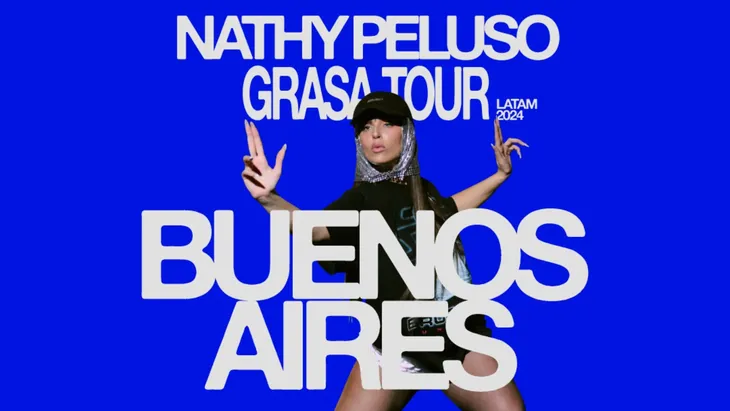The artist performs at the Movistar Arena with the GRASA TOUR. Learn more about its relationship with Argentina.
Today the artist performs at the Movistar Arena Nathy Pelusorecognized for songs like “Buenos Aires” or “BZRP Music Session Vol.36”. The artist was born in Luján, in 1995, but spent several years of her childhood in the Saavedra neighborhood. At the age of nine, he migrated with his parents to Spain, and Currently the singer is settled in Barcelona.
The content you want to access is exclusive to subscribers.
Although she is Argentine, she has lived in Spain since she was 9 years old, and years ago she was strongly criticized for saying that she feels Spanish in an interview: “I realize that it’s like that when I’m away and I want to come back. When I come back and what I want most is to eat a tortilla skewer.” Despite having an Argentine accent, “the social codes, the humor, the culture in general, the television programs, the public figures, the references… Everything is Spanish“he assured.


The controversy came when his fans associated his sayings with a song he had recently released called “Argentina”where he expressed his deep love for the country. The same thing happened with his song “Buenos Aires.” Learn more about these songs.
Nathy-Peluso-Movistar-Arena.webp

Nathy Peluso: What are her songs that talk about Argentina
“Buenos Aires” (2020)
Embed – NATHY PELUSO – BUENOS AIRES
This song expresses the feeling of loneliness and tiredness in urban life. It speaks of monotony and the desire for freedom in the middle of a cold and depersonalizing city. The song shows frustration and waiting for someone or something to break that routine, while trapped in melancholy.
“Argentina” (2022)
Embed – Trueno, Nathy Peluso – ARGENTINA (Official Video)
This song, performed with Trueno, is a declaration of love, pride and support for Argentina and its people. Both artists talk about the difficulties that the country’s inhabitants are going through, highlighting their struggle, dreams and dignity. They refer to places, traditions, historical moments and characters that represent the identity of Argentina.
Source: Ambito




